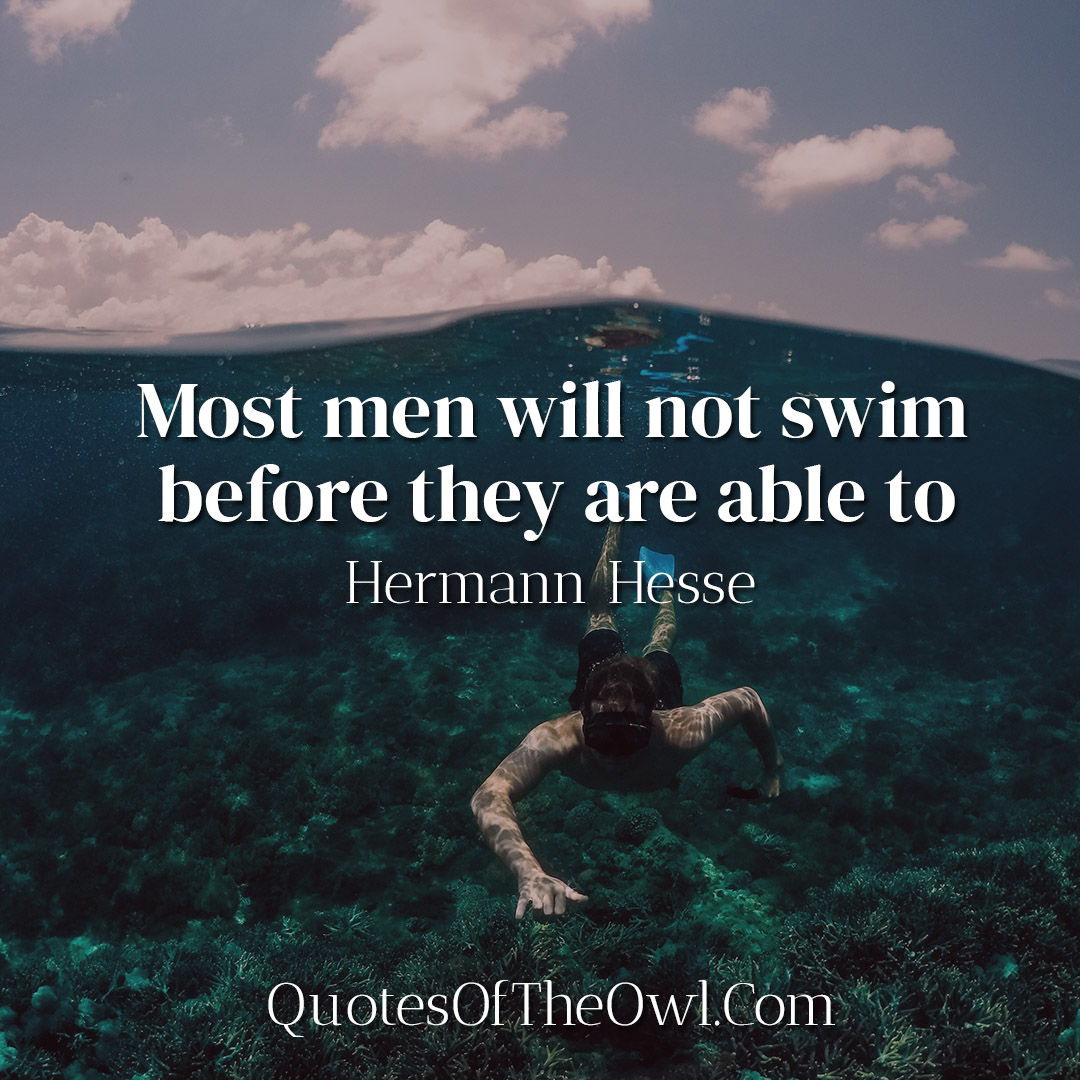Most men will not swim before they are able to – Herman Hesse
Herman Hesse’s thought-provoking quote illuminates the intricacies of human nature and societal norms. At first glance, it presents a witty observation, but delving deeper reveals profound insights into human behavior and the dichotomy between comfort and exploration. The full phrase from Hermann Hesse’s “Steppenwolf” is “Most men will not swim before they are able to.” Is that not witty? Naturally, they won’t swim! They are born for the solid earth, not for the water. And naturally they wont think. They are made for life, not for thought. Yes, and he who thinks, what’s more, he who makes thought his business, he may go far in it, but he has bartered the solid earth for the water all the same, and one day he will drown.”
Let’s break down the key elements of this quote:
- Metaphor of Swimming and Solid Earth:
- “Most men will not swim before they are able.” This metaphorical statement suggests that people are hesitant to engage in activities or pursuits for which they feel unprepared or unskilled.
- “They are born for the solid earth, not for the water.” Hesse contrasts the familiar and stable “solid earth” with the unknown and potentially unstable “water.” The solid earth represents the comfortable and routine aspects of life that people are naturally inclined towards.
- Thought and Life Dichotomy:
- “And naturally, they won’t think. They are made for life, not for thought.” Here, Hesse presents a dichotomy between life, with its practical and everyday aspects, and thought, which implies deeper reflection and intellectual engagement. The implication is that most people prioritize the practical aspects of living over contemplation.
- Critique of Intellectual Pursuits:
- “He who thinks, what’s more, he who makes thought his business, he may go far in it…” Hesse acknowledges that those who engage in deep thinking and make it a central aspect of their lives may achieve great intellectual heights.
- Trade-Off and Drowning Metaphor:
- “…but he has bartered the solid earth for the water all the same, and one day he will drown.” Hesse introduces the idea of a trade-off. The person who devotes themselves to thought has exchanged the familiar and stable (solid earth) for the uncertain and potentially overwhelming (water). The metaphor of drowning suggests the potential risks and challenges associated with a life devoted to intellectual pursuits.
- Overall Message:
- Hesse seems to caution against an excessive focus on intellectual pursuits at the expense of practical, everyday life. While acknowledging the potential for success in the world of thought, he highlights the dangers and risks of losing touch with the grounded reality of existence.
In summary, Hesse’s quote uses vivid metaphors to explore the tension between the practical and the intellectual, suggesting that an excessive focus on abstract thought may lead to a disconnection from the stable foundations of everyday life. The quote encourages a balanced approach that recognizes the value of both thought and practical living.

